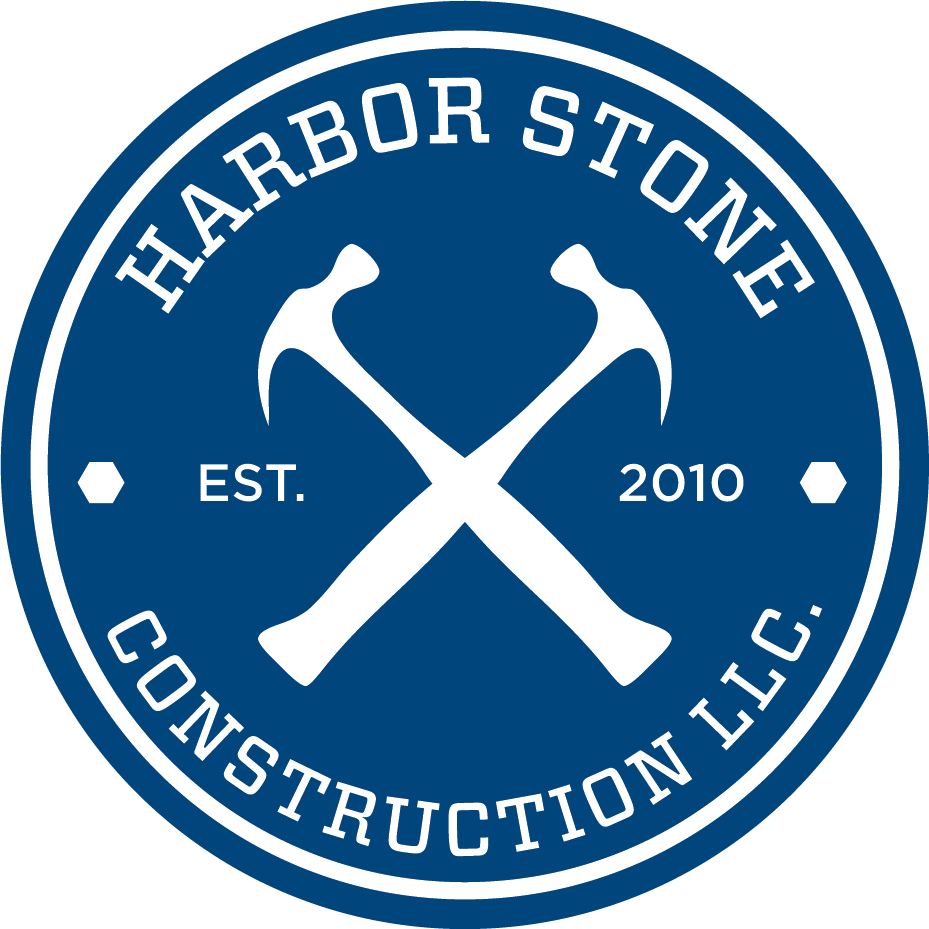The Secret to Success: Why Investing in Commercial Kitchen Renovations is a Smart Move
Are you a restaurant owner or entrepreneur looking to take your business to the next level? If so, investing in commercial kitchen renovations may be the secret to your success. In today’s competitive food industry, having a well-designed and efficient kitchen is indispensable for maximizing productivity and delivering excellent dining experiences.
But it’s not just about aesthetics and functionality. Renovating your commercial kitchen can also lead to significant cost savings in the long run. By upgrading your kitchen equipment and optimizing your workflow, you can reduce energy consumption, minimize food waste, and streamline operations. Not to mention, a modern and stylish kitchen can also attract more customers and boost your brand image. If you’re ready to elevate your restaurant game and stay ahead of the competition, it’s time to consider investing in commercial kitchen renovations. Get ready to watch your business thrive.
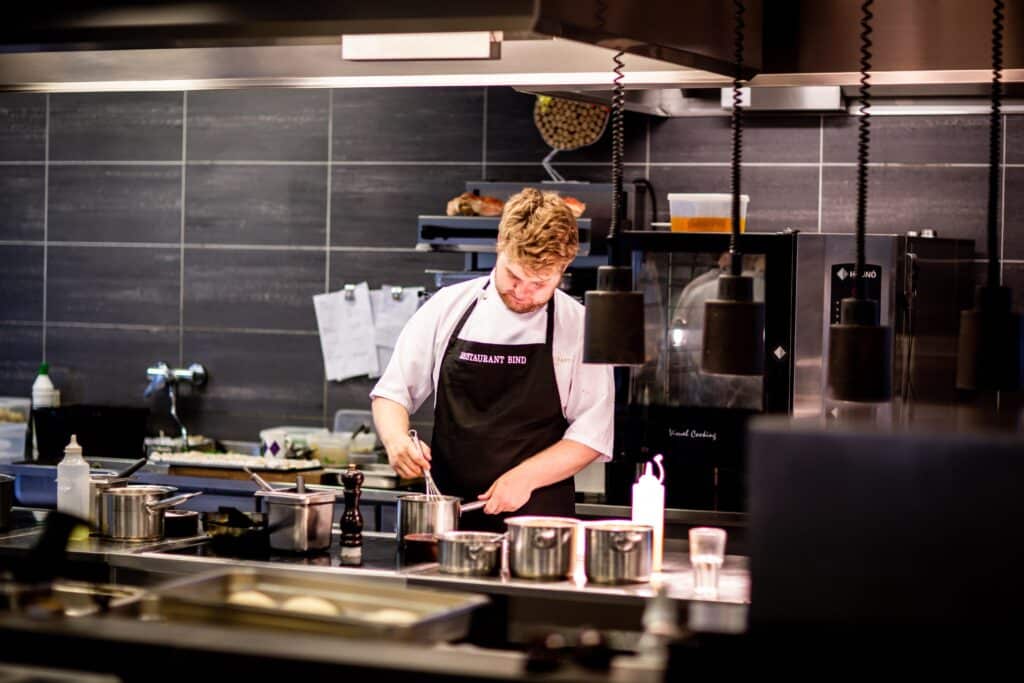
The Benefits of Investing in Commercial Kitchen Renovations
Investing in commercial kitchen renovations offers benefits that can have a substantial impact on your business. First and foremost, a well-designed kitchen layout can significantly enhance the operational efficiency. Strategically organizing your workstations, storage areas, and equipment will allow you to create a streamlined workflow that reduces bottlenecks and improves productivity. This means faster service, shorter wait times, and ultimately, happier customers.
The opportunity to upgrade your equipment and appliances is another advantage of commercial kitchen renovations. Newer models are often more energy-efficient, leading to lower utility bills and reduced environmental impact. Additionally, more modern equipment may help you optimize cooking times, resulting in even better food quality and consistency. By investing in high-quality, durable appliances, you can also minimize maintenance and repair costs over the duration of time spent utilizing the commercial kitchen space.
Renovating your commercial kitchen also allows you to address any safety concerns and remain in compliance with your current local health codes. Outdated equipment or poorly designed layouts can present hazards and increase the risk of accidents. By investing in renovations, you can create a safer working environment for your staff, reducing the likelihood of injuries and potential liability issues.
Furthermore, a renovated commercial kitchen can elevate your brand image and attract more customers. Aesthetics play a crucial role in shaping consumers’ perceptions in our visually-driven culture. A modern and stylish kitchen has the power to almost immediately create a positive impression and convey a sense of professionalism, cleanliness, and attention to detail. This can lead to increased foot traffic, positive online reviews, and ultimately, higher revenue.
Key Considerations Before Starting a Commercial Kitchen Renovation
Before diving full force into a commercial kitchen renovation project, here are several key considerations to keep in mind. Firstly, it’s important to assess your current kitchen’s strengths and weaknesses. Ask yourself and your staff: are there any particular pain points or inefficiencies that need to be addressed? Pinpointing this will help you prioritize your renovation goals and ensure the final design aligns with your specific needs and objectives.
Another major aspect to consider is your budget. Commercial kitchen renovations can range from minor updates to complete overhauls, thus making the costs vary significantly. Set a realistic budget, and allocate funds accordingly. Keep in mind that while investing in quality materials and equipment may require a higher upfront cost, it can result in long-term savings and improved performance.
Additionally, consider the potential impact of the renovation on your business operations. Will you need to temporarily close your restaurant or modify your operating hours? Take care to plan for these disruptions and communicate clearly with your staff and customers in advance. Minimizing downtime and ensuring a smooth transition are key to maintaining customer satisfaction and lessening any revenue loss.
Lastly, research and comply with local building codes and regulations. Obtaining the necessary permits and approvals can be a time-consuming process, so it’s important to start early and work closely with your contractor to ensure compliance. Failure to meet these requirements can result in costly fines or delays, which can negatively impact your renovation timeline and budget.
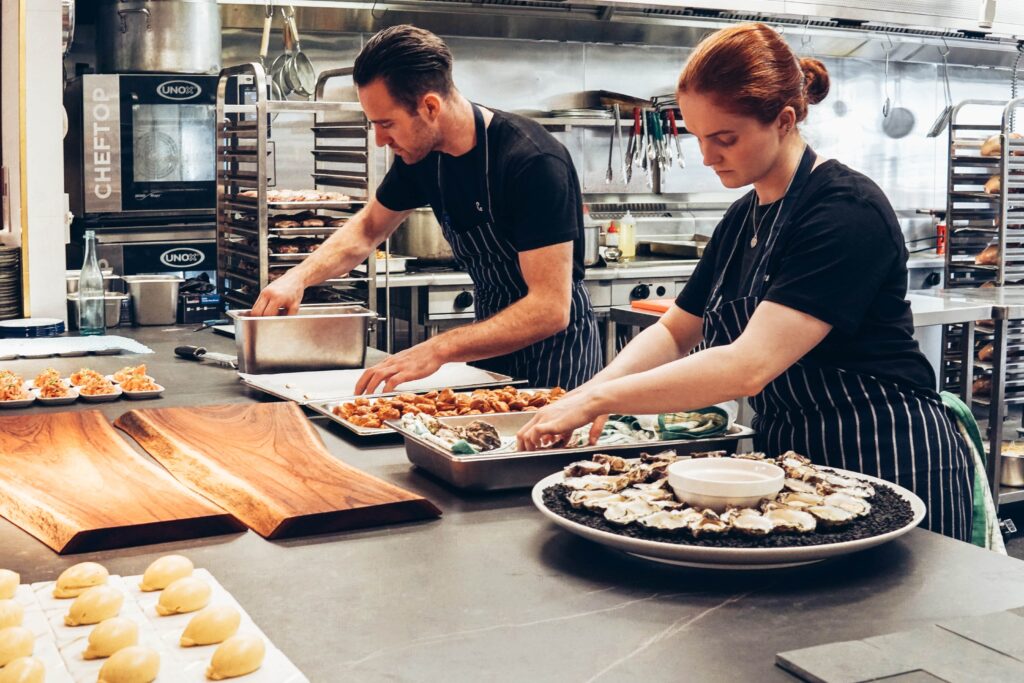
Common Commercial Kitchen Renovation Mistakes to Avoid
Embarking on a commercial kitchen renovation project can be exciting, but it’s important to avoid common pitfalls that can derail plans and lead to unnecessary extra costs. What’s one of the most common mistakes? Failing to plan adequately. Taking the time to thoroughly plan every aspect of the renovation, from design to budgeting to timelines, is crucial for a successful project. Rushing into renovations without a clear plan can lead to expensive changes or delays later on.
Another mistake to avoid is overlooking the importance of functionality. While aesthetics are important, the ultimate goal of a commercial kitchen is to efficiently produce high-quality food. It’s essential to prioritize functionality and ensure that your kitchen layout supports smooth workflow and minimizes potential bottlenecks. Consider consulting with a professional kitchen designer who specializes in optimizing space and workflow.
Additionally, be careful about over-customizing your kitchen. While it’s natural to want a personalized space, overly customized features can be difficult and costly to maintain or replace in the future. Opting for more standardized equipment and fixtures can save you time and money in the long run. Quality renovation projects aim to strike a strong balance between aesthetics and practicality.
Finally, one of the biggest mistakes to avoid is not hiring a reputable contractor. Choosing the right contractor will make or break your renovation project. Take the time to research and vet potential contractors, checking references and portfolios of past projects. Look for contractors with experience in commercial kitchen renovations and a track record of delivering high-quality work on time and within budget.
Steps Involved in a Successful Commercial Kitchen Renovation Project
A successful commercial kitchen renovation project involves several key steps that should be meticulously followed to ensure a smooth and efficient process. The first step is to conduct a thorough assessment of your current kitchen layout and equipment. Identify areas that need improvement and establish your renovation goals and priorities.
Once you have set a clear vision of what you want to achieve, the next step is to develop a detailed design plan. This includes creating a layout that optimizes workflow, selecting appropriate equipment and fixtures, and considering ergonomic factors such as staff comfort and safety. Collaborate with a professional kitchen designer to bring your vision to life and create designs that align with local building codes and regulations.
After finalizing the design, it’s time to create a comprehensive budget that includes all renovation costs, such as materials, labor, permits, and any unforeseen expenses. Working closely with your contractor will help you to obtain more accurate cost estimates and to see that your budget is realistic – as well as flexible enough to accommodate potential changes or unforeseen circumstances.
The next step is to obtain the necessary permits and approvals from local authorities. As we mentioned, this can be a time-consuming process, so it’s essential to start early and work closely with your contractor to achieve compliance with all regulations. Failure to obtain the required permits can result in costly fines or delays.
Once all permits are secured, it’s finally time to begin the construction phase. Demolishing existing structures, installing new equipment and fixtures, and making any necessary plumbing or electrical modifications are all part of this exciting stage. Throughout this phase, effective communication with your contractor is key to keeping the project on track.
Once the heavy duty construction phase is complete, it’s time for the final touches and finishing details. This includes painting, flooring, installing countertops and backsplashes, and any other aesthetic elements that will complete the look of your renovated kitchen. Make time to thoroughly inspect the work and check to see that everything meets your standards before officially reopening your kitchen to the public.
Finding the Right Contractor for Your Commercial Kitchen Renovation
Finding the right contractor for your commercial kitchen renovation is vital for the success of your project. With so many options, it can feel overwhelming to make a decision. However, by following a few key steps, you can find a reliable and experienced contractor who will deliver high-quality work.
First and foremost, ask for recommendations from trusted sources, such as fellow restaurant owners or industry professionals. Word-of-mouth referrals can provide some of the most valuable insights into a contractor’s reputation and workmanship. It’s also a great idea to check online review platforms and websites for testimonials and ratings from past clients
When evaluating potential contractors, ask for references and portfolios of their previous commercial kitchen renovation projects. This will give you a tangible idea of their style, attention to detail, and ability to meet deadlines and budget constraints. Don’t be shy about reaching out to these references and asking about their experience working with the contractor you’re considering.
It’s also important to verify that the contractor is licensed and insured. This helps protect you from liability in case of any accidents or damage during the renovation process. Request proof of insurance and ensure that it covers both property damage and workers’ compensation.
When meeting with potential contractors, pay attention to their communication skills and responsiveness. A trustworthy contractor should be able to clearly communicate their plans, provide accurate cost estimates, and answer any questions or concerns you may have. Finally, don’t forget to trust your instincts. If something feels off or if you have any doubts about a particular contractor, it’s best to move on and continue your search. Renovating a commercial kitchen is a significant investment, and you want to ensure that you’re working with a contractor you feel good about who understands your vision and can deliver exceptional results.
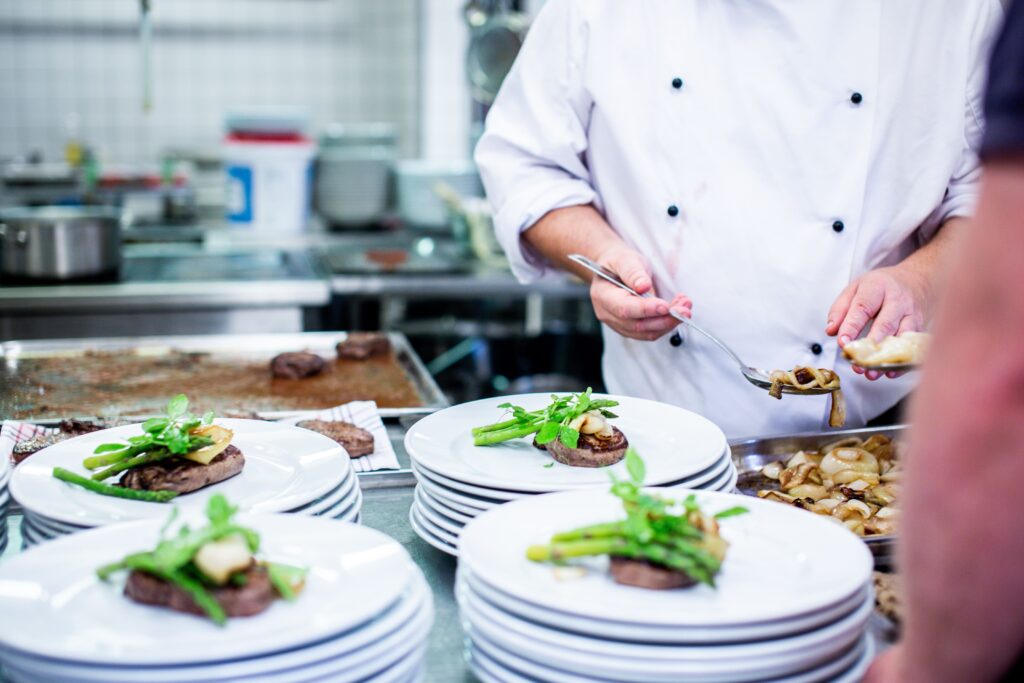
Cost Estimation and Budgeting for Commercial Kitchen Renovations
Cost estimation and budgeting are naturally big steps in any commercial kitchen renovation project. Having a clear understanding of the costs involved and setting a realistic budget will help to avoid overspending.
Total cost of a commercial kitchen renovation will vary depending on several factors, including the size of the space, the scope of the project, and the level of customization. Minor updates and cosmetic changes can cost as little as a few thousand dollars, while a complete renovation can reach six figures or more.
When estimating costs, always consider both the direct and indirect expenses. Direct expenses refer to components like materials, equipment, labor, permits, and any professional fees. Indirect expenses include costs that may not be immediately apparent but are essential for a successful renovation, such as temporary storage, insurance, and potential revenue loss during the construction phase.
To create an accurate budget, try obtaining multiple quotes from different contractors. This will give you an idea of the average cost for your specific project. Be sure to give each contractor with the same specifications and requirements to ensure the quotes are truly comparable.
When reviewing the quotes, keep an eye out for any hidden costs or exclusions. Some contractors may provide a lower initial estimate but may add additional charges later on. Look for and ask about any missing pieces so you have a detailed breakdown of all costs and can ensure there are no surprises down the line.
It’s also wise to allocate a contingency fund to your budget. Renovation projects often encounter unforeseen challenges or changes that can impact the final cost. Setting aside approximately 10-20% of your total budget as a contingency will help you handle any unexpected expenses without derailing the project.
Keep in mind that investing in quality materials and equipment may require a higher upfront cost but can result in long-term savings and improved performance. It’s important to find a happy medium between your desired outcome and your available budget. If necessary, consider phasing the renovation over time to spread out costs and minimize financial strain.
By carefully estimating costs and setting a realistic budget, you can ensure your commercial kitchen renovation stays within your financial means and delivers the desired results.
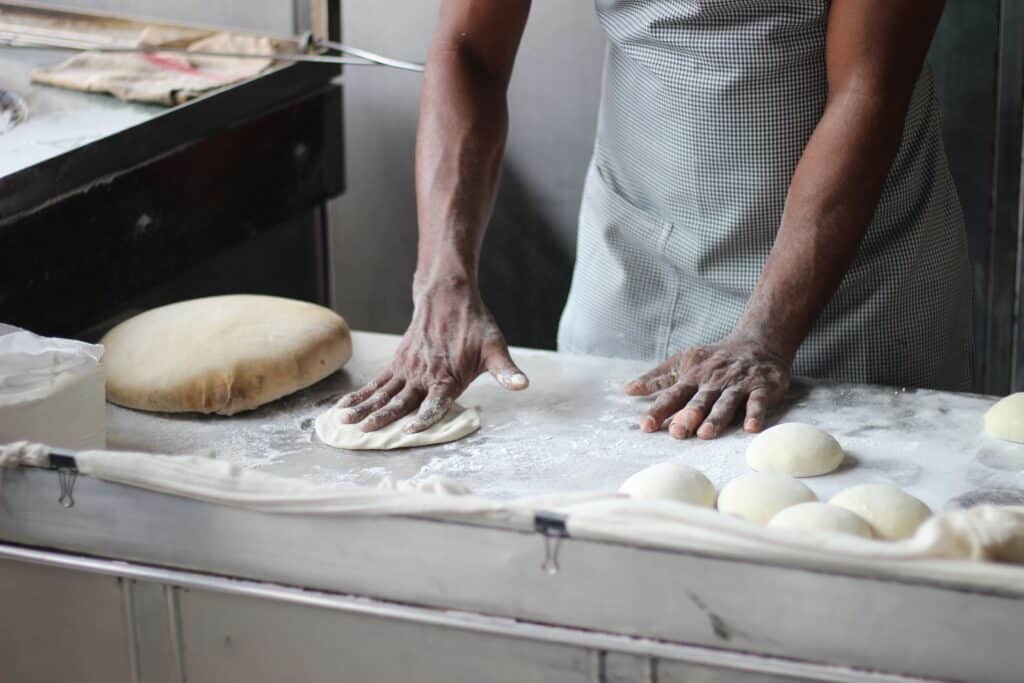
Upgrading Equipment and Appliances in a Commercial Kitchen
One of the key aspects of a successful commercial kitchen renovation is upgrading your equipment and appliances. Modernizing your commercial kitchen with new, high-quality equipment will undoubtedly lead to improved efficiency, lower operating costs, and enhanced food quality.
When considering equipment upgrades, start with evaluating your current inventory. Identify any glaringly outdated or inefficient appliances that could be hindering your productivity or increasing your energy consumption. Common candidates for upgrades include refrigeration units, ovens, ranges, fryers, and dishwashers. Prioritize energy efficiency when making your new selections. Look for appliances that have earned the ENERGY STAR® label, as they meet strict energy efficiency guidelines set by the Environmental Protection Agency (EPA). Energy-efficient equipment can help reduce your utility bills and minimize your environmental impact.
In addition to energy efficiency, consider the specific needs of your operation. Each type of restaurant requires different equipment. For example, a high-volume restaurant may benefit from a larger capacity oven or a commercial-grade dishwasher. A pizzeria may require a specialized pizza oven, while a bakery may need a large-scale mixer. Assess your menu items and production needs to ensure the new equipment you pick can handle your workload and deliver consistent results.
It’s also important to consider the ease of use and maintenance of the equipment. Look for appliances that are user-friendly, with intuitive controls and clear instructions. The availability of parts and service for potential repairs or maintenance is another practical consideration to make. Opting for reputable brands with a track record of reliability and good customer support can save you time and money in the long run.
Incorporating technology into your commercial kitchen is yet another way to streamline your operations and improve efficiency. For example, investing in a kitchen management system or a POS (point-of-sale) system can help you and your team to track inventory, manage orders, and streamline communication between the front and back of the house. Explore the technological solutions available and consider how they can benefit your specific operation.
Lastly, don’t forget about safety features. Upgrading to equipment with built-in safety features, such as automatic shut-offs or temperature controls, can help prevent accidents and enhance the well-being of your staff and customers. Safety should always be a top priority when selecting new equipment.
Design Trends in Commercial Kitchen Renovations
When renovating your commercial kitchen, it’s a good idea to attempt to stay up-to-date with the latest design trends so you create a modern, functional, and aesthetically pleasing space.
Here are some design trends that are currently popular in commercial kitchen renovations:
1. Open and Flexible Layouts: Open kitchen designs that allow customers to see the cooking process have gained popularity in recent years. This not only adds a sense of transparency but also creates a more interactive dining experience. Flexibility in layout is also important to accommodate different cooking styles and needs.
2. Sustainable Materials: With an increasing focus nationwide on sustainability, many commercial kitchens are incorporating eco-friendly materials into their renovation projects. This can include anything from using recycled or reclaimed materials for countertops, flooring, and cabinetry to installing energy-efficient lighting fixtures and low-flow plumbing fixtures.
3. Natural Light: Maximizing natural light is a very popular trend in commercial kitchen design. Large windows or skylights not only improve the overall ambiance but also reduce the need for artificial lighting during the day. This can lead to significant energy savings.
A Trusted and Experienced Contractor for Your Commercial Kitchen Remodel
If you are considering a commercial kitchen remodel, Harbor Stone Construction is ready to help. As a fully insured licensed general contracting company based in southeastern PA, we provide an unparalleled level of service, support, and communication, which will make you feel at ease, comfortable, and confident in our services. Experience and quality are the cornerstones of what we do. Contact us (610) 467-0872 or reach out online for a free quote for your next commercial or residential project.
